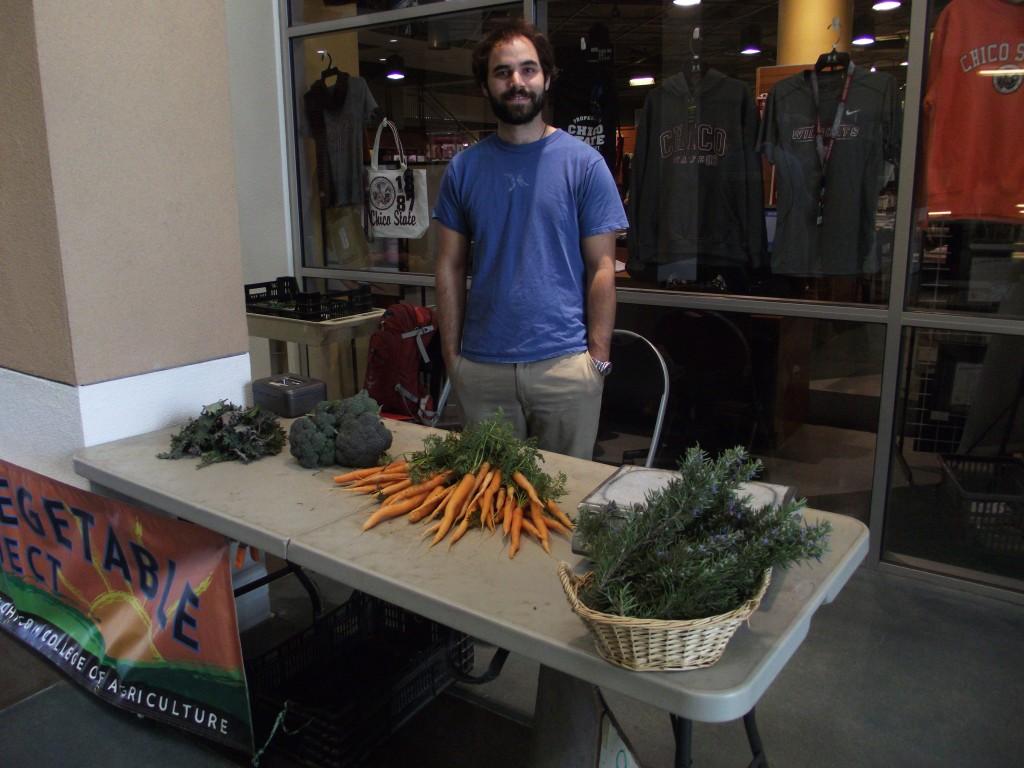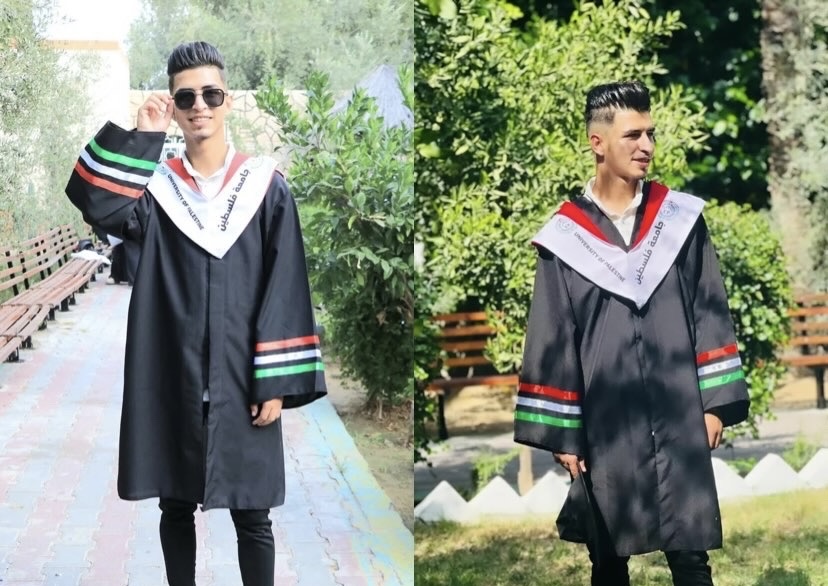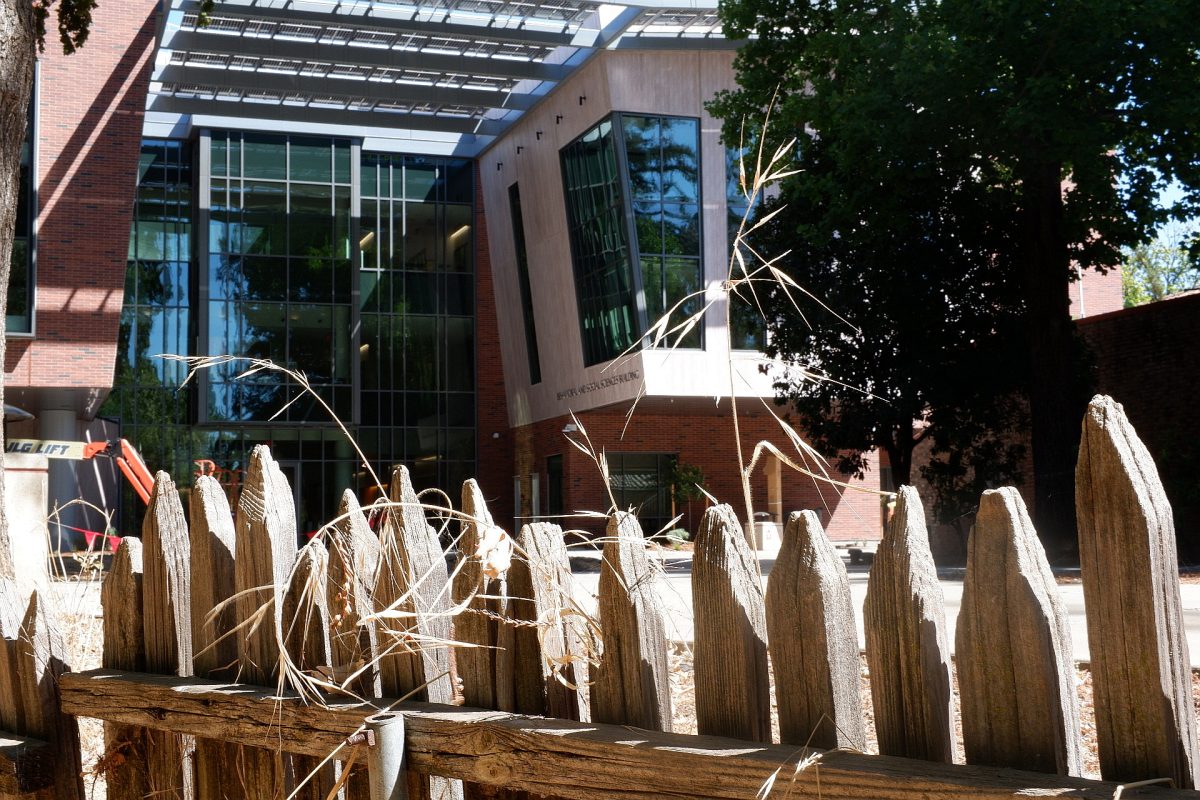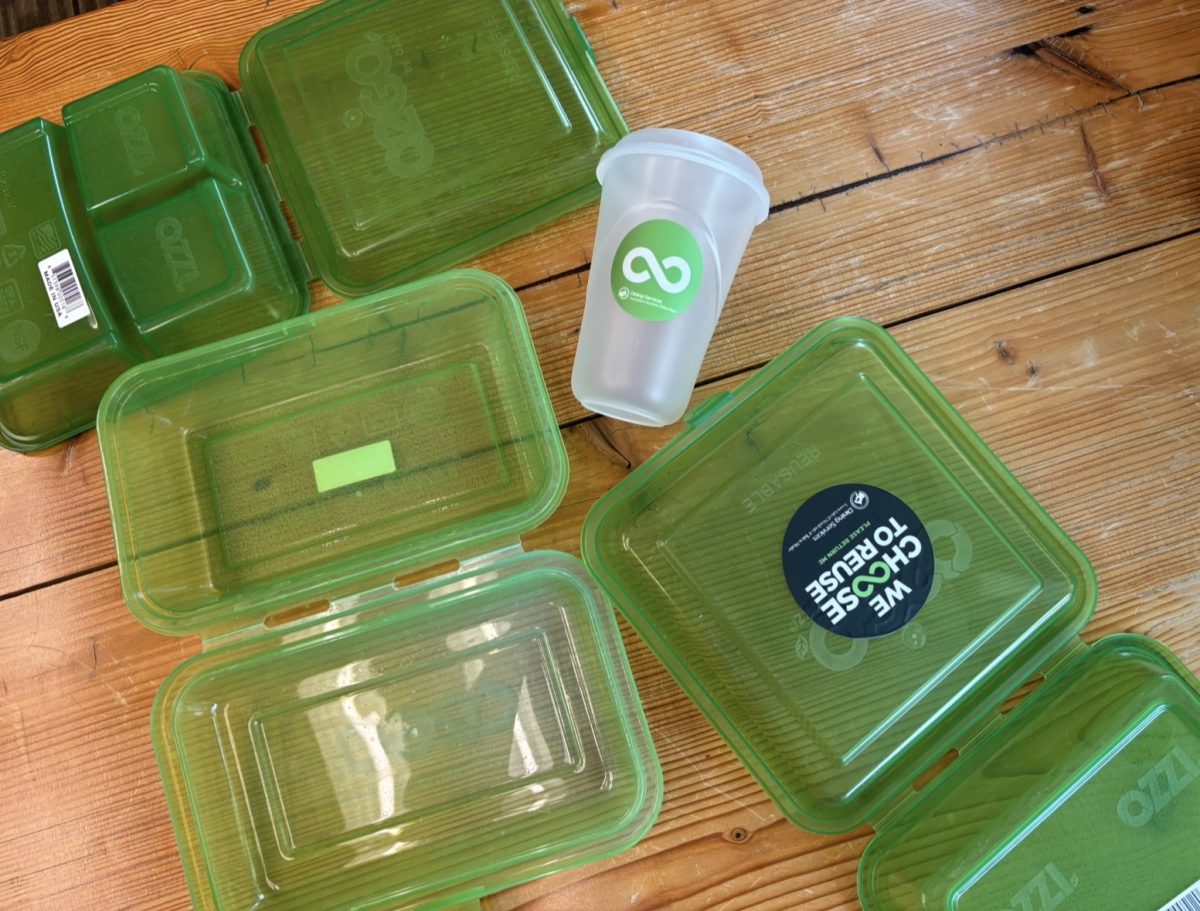
The University Farm is opening a new market on Friday with the Organic Vegetable Project.
The Organic Vegetable Project is a grant-funded, research-based and student-run project that started in the spring of 2008.
The project was spearheaded by Associated Students Sustainability and Lee Altier, professor of horticulture and director of the Organic Vegetable Project. It takes up 10 of the farm’s 800 acres.
“I’ve talked with people who don’t even know we have a University Farm, let alone that it’s 800 acres,” said Kyle Riddle, a senior agricultural business major and marketing manager of the project.
The project is based on sustainable agriculture and offers participants a diverse set of hands-on skills in both production and marketing. It provides vegetables, community information and workshops, internships, a directive work class and a market on campus.
Organic Vegetable Project provides food for A.S. so it sells to the Marketplace Cafe, the Bell Memorial Union, Sutter Dining Hall and A.S. Catering, Riddle said.
“It’s a good way to support the closed-loop sustainability approach, because it goes from the University Farm to the university cafeteria,” he said.
The project takes a hands-off policy in relation to other growers.
“Our policy is that if they can get their produce from other local growers, we don’t compete,” Riddle said. “That would be counter-productive. We’re research, and that’s how they make their bills at the end of the month.”
The project provides practical skills for the next generation, Altier said.
“It’s important for our community to recognize that our students’ involvement in local food production on the University Farm provides some of those skills,” he said.
Organic farming is a strategic process, Altier said.
“Restricting ourselves to the constraints of farming organically imposes upon us a necessity — that we have to do it strategically,” he said. “This includes how we manage the whole environment there to mitigate against pest outbreak.”
An entomologist colleague told Altier that the project is by far the most diverse area on the farm for field sampling and surveying .
“I take that as a compliment,” Altier said. “We don’t want a sterile environment, we want a diverse environment.”
They have created a more complex, diverse habitat, figured out how to use water more efficiently and have minimized the use pesticides through the use of fertilizer.
“If people knew the limitations of life on other parts of the planets, they’d realize the abundance we have in this area is something that’s extremely worth protecting and conserving,” Altier said.
The project emphasizes a need to focus on local agriculture.
“There’s always been this assumption in America that if something isn’t available locally, you can bring it in from somewhere else,” Altier said. “I think it’s about time we start thinking about communities really being sustainable, by recognizing the biological capacity of the area and living off the local, natural capital.”
Gary Nelson can be reached at [email protected] or @theorion_news on Twitter.








